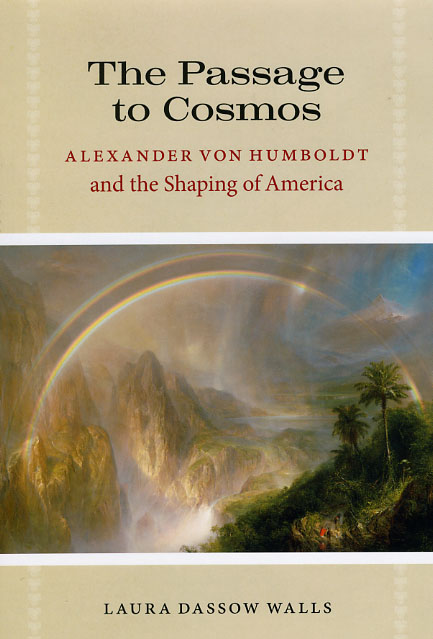A Humboldtian Renaissance

Humboldt who? That’s usually the reaction from modern readers when introduced to the father of geography, Alexander von Humboldt. He was admired by Darwin and Jefferson, yet Humboldt is less well-known than the men he inspired. So why is it important to keep his legacy alive? And what does this nineteenth-century German-born naturalist have to offer science and the humanities in the twenty-first century anyway? A lot. At least that’s what the University of Chicago Press thinks, and we’ve begun publishing books that translate his writing and contextualize his explorations.
Last year, the Press published The Passage to Cosmos: Alexander von Humboldt and the Shaping of America, Laura Dassow Walls’s reintroduction of this seminal thinker to new audiences. Her book traces Humboldt’s ideas for Cosmos —the book that crowned his career—to his 1799 journey to the Americas, where he first experienced the diversity of nature and of the world’s peoples—and envisioned a new cosmopolitanism that would link ideas, disciplines, and nations into a global web of knowledge and cultures. Walls recently spoke about Humboldt and her book at the Virginia Festival of the Book, and Book TV was there to film the presentation. After you watch her speech here, be sure to check out an excerpt from the book here.
Also this Spring, the Press is publishing the long-awaited translation of Alexander von Humboldt and Aimé Bonpland’s Essay on the Geography of Plants. Among the most cited writings in natural history, after the works of Darwin and Wallace, this work appears here for the first time in a complete English-language translation. Covering far more than its title implies, it represents the first articulation of an integrative “science of the earth,” encompassing most of today’s environmental sciences. The edition also includes a stunning poster-sized color reproduction of the Mt. Chimborazo tableau, an icon in the history of science and scientific graphics.
The Press has also commissioned a new series called Humboldt in English, which will feature volumes of new, unabridged, and annotated translations of the most significant parts of Alexander von Humboldt’s monumental study of transatlantic and global modernities. The first volume, Political Essay on the Island of Cuba, will be released this fall. For more on the series, go here.